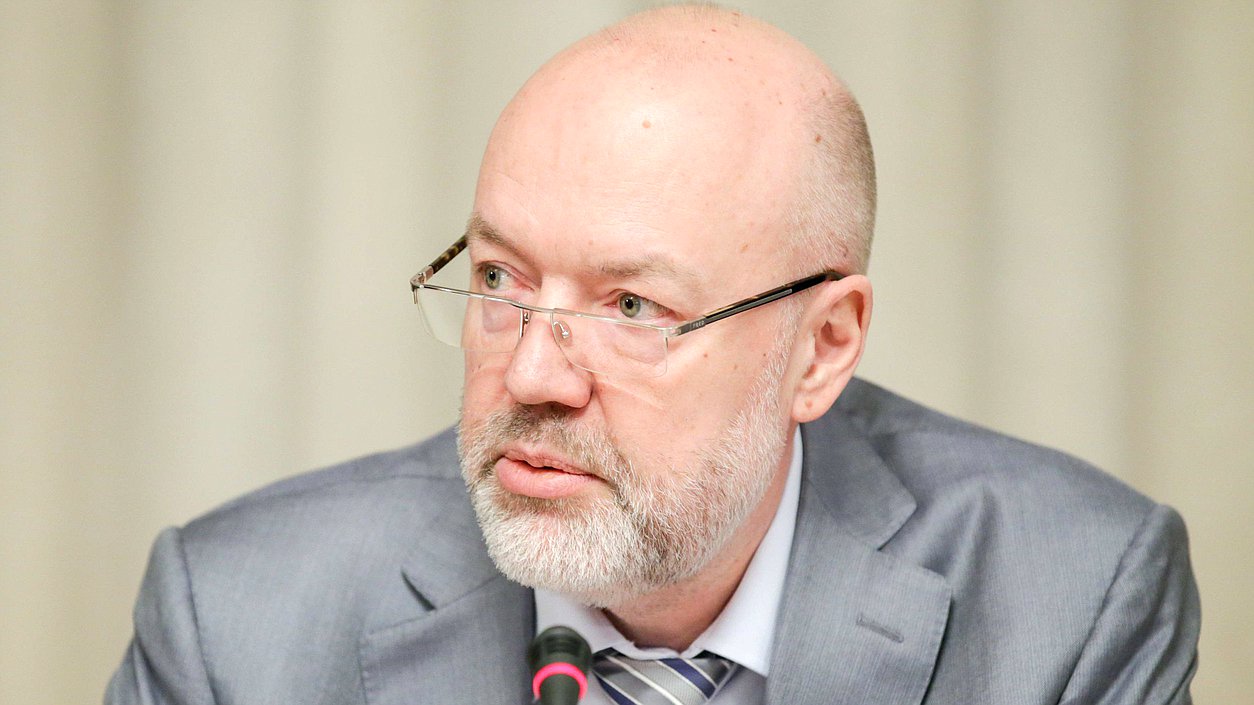
The Head of Human Rights Policy and Co-operation
Department of the Council of Europe Mikhail Lobov, the head of the department of the European Court of Human Rights, and the extrajudicial rapporteur Anna Stepanova
also attended the meeting. The Russian side was represented by the Representative of the Russian Federation at the European Court of Human Rights,
Deputy Minister of Justice of the Russian Federation Mikhail Halperin, Deputy
Chairman of the State Duma Committee on State Building and Law Rafael
Mardanshin

Rafael Mirkhatimovich
, First Deputy Chairwoman of the State Duma Committee on International Affairs Svetlana Zhurova

Svetlana Sergeevna
, and other participants.
The goal of the event was to discuss topical issues of compliance by the Russian Federation with the European Convention on Human Rights, enhancing the exchange of information and the implementation of best practices of the execution of decisions of the European Court of Human Rights. Both resolved and unresolved issues of preventing violations of the Convention were discussed at the meeting.
Head of the Justice and Legal Co-operation Department of the Council of Europe Sundberg Fredrik noted that the enforcement of the decisions of the European Court of Human Rights regarding the protection of the violated rights of applicants is a complex process that is ensured by many state structures, and much depends on the parliament in this process. He said that in recent years a number of laws have been adopted in Russia aimed at protection of the rights of citizens in criminal proceedings, which improves their reports on compliance with the Convention on Human Rights. Some important legislative initiatives are currently under consideration by the State Duma.
One of the important initiatives is the bill introducing a prohibition to keep accused persons and suspects in metal cages in courtrooms.
Representatives of the European Court of Human Rights emphasized that the confinement of a defendant in a metal cage in the courtroom is inconsistent with the rules of civilized conduct in a democratic society, violates Article 3 of the European Convention on Human Rights and undermine human dignity. In addition, this procedure does not provide accused persons with the possibility of confidential communication with their lawyers during the trial.
In turn, Pavel
Krasheninnikov

Pavel Vladimirovich
informed the delegation about the consideration of the bill
aimed at solving this problem. He noted that the State Duma Committee on State
Building and Legislation fully supports the humanitarian objective of the draft.
Moreover, the new courts that are being established in the Russian Federation
no longer have cages in their buildings.
Pavel Krasheninnikov informed the delegates that the bill has been reviewed several times by the inter-ministerial working group, which he chairs, on improvement of the legislation on judicial system and procedural legislation, which was created by order of the Presidential Administration, and was also conceptually supported. At the same time, an appropriate mechanism for ensuring the safety of participants in court hearings with the complete abandonment of cages has not yet been developed. There are difficulties both for the legal awareness of citizens, and for the implementation of the mechanism by different state bodies. The changes will require an increase in the number of employees of the convoy service, the bailiffs service to protect law and order in the courtroom, which in turn will entail significant financial implications.
“For all these reasons, now the process of phasing out cages is being discussed, first in individual constituent entities of the Russian Federation, and after successful implementation it will be possible to gradually use this practice on the entire territory of the Russian Federation,” said Pavel Krasheninnikov. A similar process took place with the introduction of a jury trial system in Russia: it was used in certain regions, and then was spread to the entire territory of the country.
The parliamentarian informed the members of the delegation that the Committee had sent requests for feedback and comments on the proposal to relevant bodies (FSB, Ministry of Internal Affairs, Prosecutor General's Office, Investigative Committee, Supreme Court, Ministry of Justice, Federal Bailiffs Service). The Russian side continues its work on the implementation of the mechanism for abandoning protective cages in courts.
At the end of the meeting, representatives of the Council of Europe thanked the Russian side for the information provided and expressed hope for further cooperation in the context of ensuring respect for human rights.
